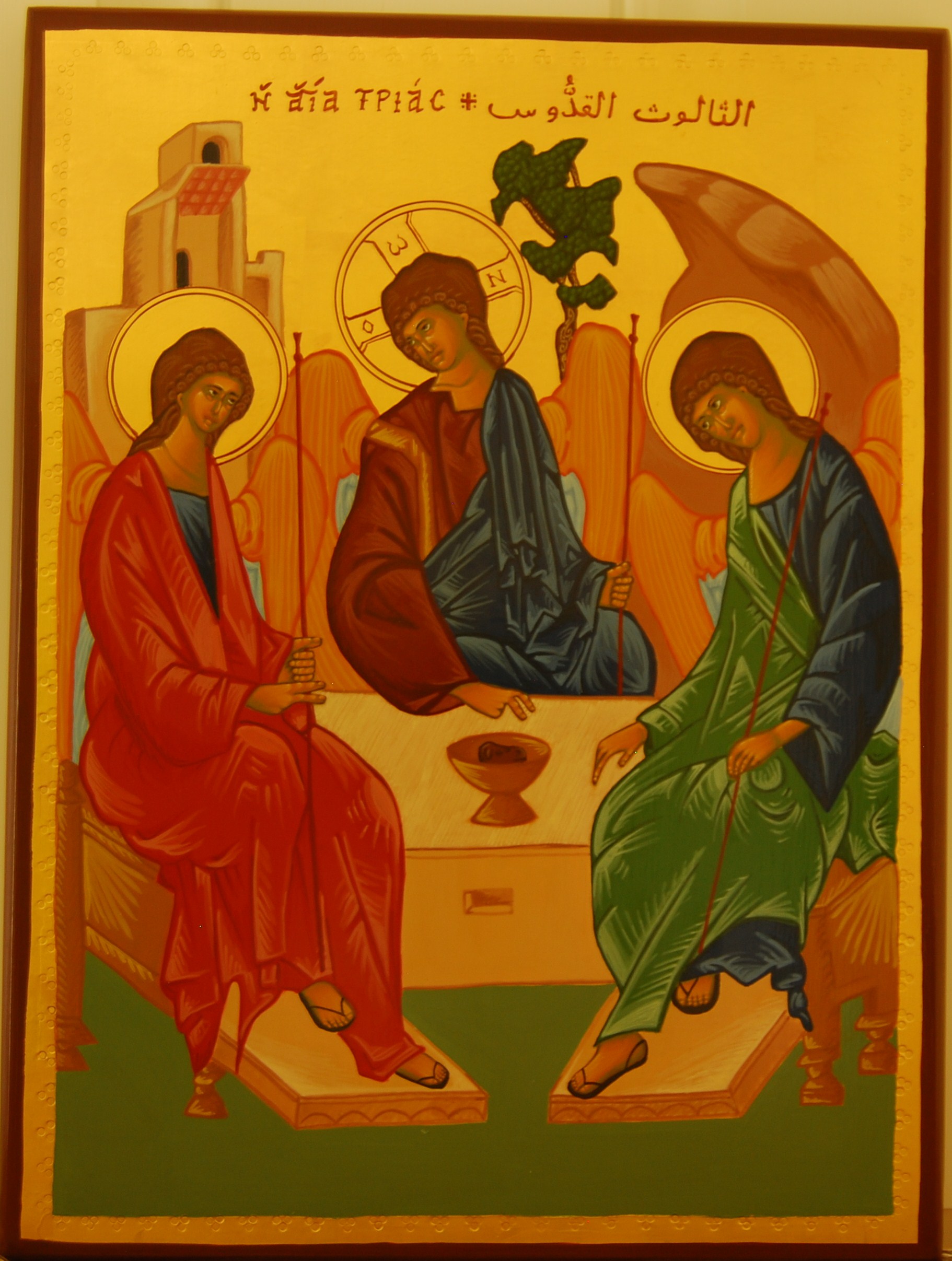Holy Trinity- A Scripture-based Understanding
|
|
The God of ScriptureGod is not an impersonal essence or even a "higher power." God is not the One; he is also the Many. Neither is "God" a noun used to mean three gods. The Orthodox faith is monotheistic and yet Trinitarian because God is the infinitely unknowable someone who "tented among us" (Jn 1:14). Generally speaking, when the Church Fathers read the Old Testament scriptures, they identified the persons, things or events in the text as symbolizing or representing another; these symbolisms were called "types." In this way, the Old Testament writing were specfically concerned with the prophecies about the incarnation of the Son of God. The prophets of Israel announced the incarnation as the coming of the Messiah. |
|
|
Thus, all the persons, things and events of the Old Testament were "types" of Christ. The Church Fathers called this most ancient manner of biblical interpretation: typology. When we look at the Old Testament scriptures, the one prefigured in the ‘type’ represents not a mere man, but the great "I am” (יהוה), the God who became man, Jesus. Thus, the God of the Orthodox Christian Church is the God of Abraham, Isaac and Jacob, the "I am" (יהוה) who revealed himself to Moses in the burning bush is Jesus, the Son of God. God revealed himself to the prophets of Israel who called God's Chosen People to faith in the Trinity, particularly through their prophecies about the incarnation of the co-eternal Son and Word of God, the coming of the Christ (Messiah) in the fullness of time. Orthodox Christians worship the Father, Son, and Holy Spirit—the Holy Trinity, the one God. Following the Holy Scriptures and their typological interpretation by the Church Fathers, the Church believes that the Trinity is three divine persons (hypostases) who share one essence (ousia). It is paradoxical to believe thus, but that is how God has revealed himself, first of all, to the Old Testament prophets of Israel through types and, ultimately, to the Apostles "in the flesh" on Holy Pentecost. |
||
About the Holy Trinity
![]()
Using every the means at their disposal to explain the experience of God in the Church, the Church Fathers sought to create a framework within which it might be possible to explain He Who Is, the God of Abraham, Isaac and Jacob, Jesus the Incarnate Son and Word of God. They availed themselves of the classical Greek philosophy to do so. Compromising the truth by placing intellectual and rational limits on God by their very definitions was the danger to be avoided.
God, in Holy Scripture, reveals himself as the One and as Three. In philosophical terms, this was stated as three divine persons of the Holy Trinity who are consubstantial with each other, that is, they are of one essence (homoousios) and coeternal. There never was a time when any of the persons of the Trinity did not exist. God is beyond and before time and yet acts within time, moving and speaking within history.
The source and unity of the Holy Trinity is the Father, from whom the Son is begotten and also from whom the Spirit proceeds. Thus, the Father is both the ground of unity of the Trinity and also of distinction. To try to comprehend unbegottenness (Father), begottenness (Son), or procession (Holy Spirit) leads to insanity, says the holy Gregory the Theologian, and so the Church approaches God in divine mystery, approaching God apophatically, being content to encounter God personally and yet realize the inadequacy of the human mind to comprehend Him.
If all this technical philosophical terminology seems difficult to grasp, we can move to another science and use it in much the same way the Church Fathers used philosophy to explain the Unknowable-One-Who-Reveals-Himself-As-Three. Let use psychological terms to examine the question by means of analogy now. Both man and woman are composite beings consisting of three parts: body, soul, and spirit. This set of three concepts in psychoanalytic theory describe distinct, interacting agents in the psychic apparatus and work together to create human behavior. The three agents are theoretical constructs that describe the activities and interactions of the mental life of a person.
The Blessed Augustine of Hippo used this analogy to help his flock comprehend the oneness of the Trinity but the distinct works of each the three divine persons. Since man is made in the image of God, man also is somehow threefold. God the Son is comparable to the body since the Son is God incarnate. God the Father is comparable to the soul, or mind, since he was the mind that created everything. The Holy Spirit is comparable to man's Spirit. As the body of man is the temple of our spirit, the body of Jesus Christ is the temple to the Holy Spirit which proceeds from the Father through (dia) the Son.
The primary statement of what the Church believes about God is to be found in the Nicene-Constantinopolitan Creed.
Apolytikion in the Plagal of the Fourth Mode (Tone 8)
Blessed are You, O Christ our God, Who have shown forth the fishermen as supremely wise by sending down upon them the Holy Spirit, and through them did draw the world into Your net. O Befriender of man, glory be to You.
Kontakion in the Plagal of the Fourth Mode (Tone 8)
Once, when He descended and confounded the tongues, the Most High divided the nations; and when He divided the tongues of fire, He called all men into unity; and with one accord we glorify the All-holy Spirit.
Sources
Greek Orthodox Archdiocese of America


